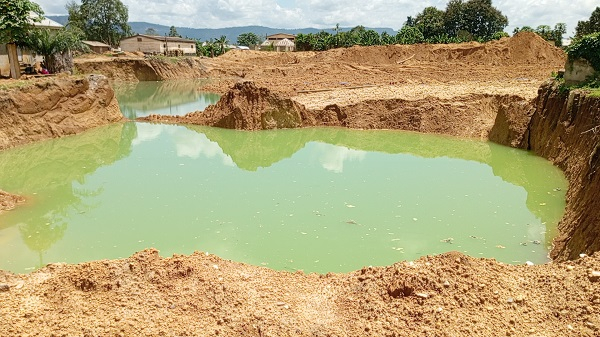Ghana’s Galamsey Crisis: A Call for Moral Renewal
File photo of a galamsey site
Leadership and Moral Decay
The President of the University Teachers Association of Ghana (UTAG) at the Kwame Nkrumah University of Science and Technology (KNUST), Professor Eric Abavare, has attributed Ghana’s ongoing struggles to combat illegal mining, commonly known as “galamsey,” to a pervasive moral decay within the country’s leadership.
Environmental Destruction as a Reflection of Selfishness
In a recent Facebook post, Professor Abavare outlined that the relentless degradation of water bodies and forest reserves in Ghana is not solely a product of weak law enforcement; rather, it signifies a deep-seated culture of selfishness and a blatant disregard for the welfare of future generations.
Greed and Political Will
He pointed out that beyond the evident lack of political will, the actions of certain leaders reveal a troubling sense of greed and moral bankruptcy. “Apart from the lack of political will, we have greedy, dotard elders and leaders in this country who don’t care one bit about anyone but themselves,” he remarked.
A Frustrated Youth
The ongoing crisis, according to Professor Abavare, has led to widespread frustration and hopelessness among Ghana’s youth. Many young individuals feel compelled to engage in illegal mining, believing that the nation’s leaders have failed to provide them with viable alternatives for the future.
Leadership Vacuum and Accountability
He emphasized that the galamsey crisis exemplifies a vacuum of moral leadership in Ghana. The elders, responsible for setting a commendable example, have not upheld the principles of integrity and accountability. He lamented, “We claim to have elders, yet they carry the cliché ‘miwua namiko’ — which implies a lack of concern for the future.
Call to Action for National Moral Renewal
Professor Abavare has called for a national moral renewal. He urges the government, traditional authorities, and civic institutions to confront root causes of greed, corruption, and short-term thinking that continue to facilitate illegal mining in the country.
Conclusion
The fight against illegal mining in Ghana is urgent and essential. As highlighted by Professor Abavare, addressing the crisis requires not just legal measures, but also a profound transformation in the moral compass of the nation’s leaders. Only through collective action can Ghana reclaim its environmental integrity and secure a better future for generations to come.
